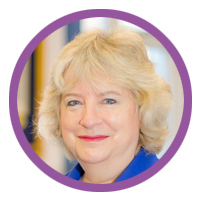Supporting pupil recovery following lockdowns
Tuesday 27 July 2021
 The pandemic shone a light on the inequity of society. Some young people were able to keep learning online, with a quiet place to work and parents who could help support their learning, while their less fortunate counterparts might be huddled around one mobile phone with a whole family trying to study.
The pandemic shone a light on the inequity of society. Some young people were able to keep learning online, with a quiet place to work and parents who could help support their learning, while their less fortunate counterparts might be huddled around one mobile phone with a whole family trying to study.
That’s why the whole narrative of ‘catch-up’ is unfortunate. It has a tinge of blame, implying that the pupil hasn’t been able to keep up with their learning, and the teacher hasn’t been able to support them. But this is a problem of uneven playing fields, not laziness or incompetence.
Teachers working in schools where their young people just didn’t have the resources to keep learning would have taken that so personally. They understand their local communities and what their children have been through, so to support pupil recovery, above all else we need to trust our teachers.
Individual teachers know their children best – they know who will need additional support, in which areas, and how to do this. They are in the best place to work with young people and their families to make up lost ground, whether that’s academic, social or emotional.
Because we can’t focus only on supporting pupils’ academic recovery and ignore the importance of supporting their mental health. The two are linked – when teaching a whole class it is almost impossible to adjust to one pupil who is acting out because they can no longer cope in their school setting.
The lockdown was the last straw for many young people – although we had a growing weight of evidence that children’s mental health was under increasing threat even before the pandemic. But now that youngsters are back in the classroom these issues are coming to the surface, and it is so important that schools have the resources to cope with this. Because if we just expect teachers to absorb that pupil’s anxiety by themselves, while trying to teach 29 others, that will only add to the pressure they’re already feeling.
This is crucial as the wellbeing of teachers, and school leaders, has never been this threatened. Headteachers have spent over a year making what feel like life or death decisions on behalf of their school and wider communities, and the strain is increasingly starting to show. Particularly in small schools, the headteacher is seen as the figure of ultimate authority, but they are human as well, and trying to cope with human pressures while supporting everyone else.
That’s one reason why I’m so proud of the work we’ve done at the Chartered College during this time. Particularly during the lockdown, our community was reassuring each other as much as we were sharing ideas, supporting each other emotionally as well as professionally, and providing what leadership we could in a time of ultimate crisis.
And now we will continue to work together, sharing what we know to work more widely. Because to succeed we will need to look at what makes the most difference to learning, sharing the best ideas and working to ensure these are available to all our pupils.
Access to books, access to technology, access to food (you can’t learn if you’re hungry), access to a quiet place to work. We know how important these all are, so we need to work out how to make sure every pupil has these.
Even small steps like schools extending the time their buildings are open will help. This doesn’t mean mandatory extra classes but just making sure that pupils have better access to technology, and a quiet place to sit and do their homework.
We know that lots of schools are doing this already, but by sharing ideas like this we can help others to find simple solutions which can have significant impact. Teachers know what will work, so we need to trust them. By working together, supporting each other, we can help our young people go on to reach new heights, and put these dark days behind us.
